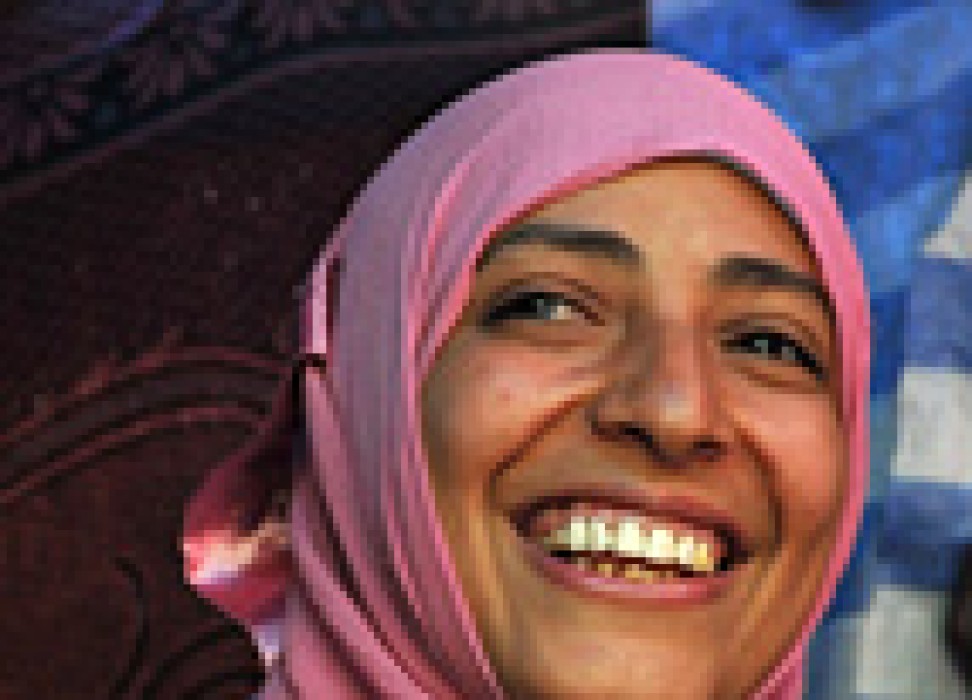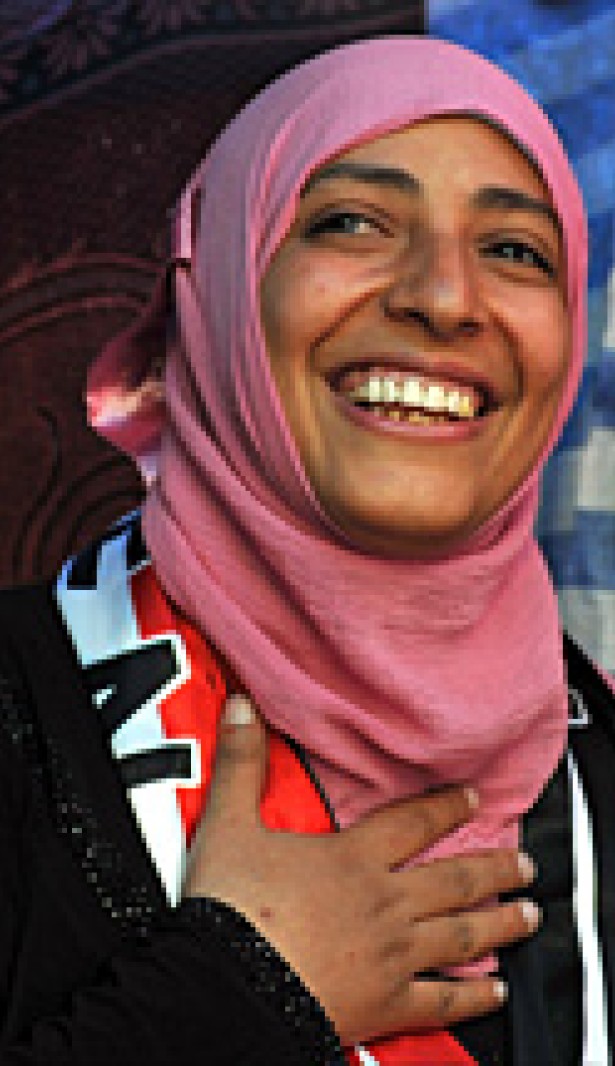The Nobel Peace Prize: its youngest-ever winner
12 October 2011

Tawakkul Karman is 32 years old, the mother of three children, a journalist, and an activist in her home country of Yemen and now the youngest person ever to have been awarded the Nobel Peace Prize.
In a recent interview given to a member of a UN Human Rights assessment mission prior to the awarding of the Nobel Peace Prize, Karman spoke of the aspirations of the democracy moment.
“Young Yemenites are seeking their freedom, their dignity and the return of their homeland which has been plundered for 33 years.”
Karman, along with Ellen Johnson Sirleaf, the President of Liberia and Leymah Gbowee, a Liberian campaigner for peace and the rights of women, shares this year’s Nobel Prize.
In its announcement of the 2011 Peace Prize the Nobel committee says it was awarded to the three because of their “their non-violent struggle for the safety of women and for women’s rights to full participation in peace-building work.”
A prominent participant in the protests at Sanaa Change Square, Karman was one of only a few women selected on the Transitional National Council, established in August, by those opposing the Yemeni regime.
Yemeni authorities detained Karman briefly in January of this year after the success of the movement for change and democracy in Tunisia and again a few days later at the start of the peaceful protest movement in Yemen.
She remains undaunted. “We firmly believe this is about a peaceful fight which asks for sacrifices. We give our lives, our blood, our money, everything for the pride and dignity of our country.”
A delegation from the Office of the High Commissioner for Human Rights visited Aden, Sana’a and Ta’izz between 28 June and 6 July this year. In its report on the Mission, the delegation called for immediate action to protect civilians, respect for the right to peaceful demonstration and action to address the “deteriorating humanitarian situation” in the country.
The report also stressed the need for “international, independent and impartial investigations” into allegations of human rights abuses related to the peaceful protest movement in Yemen.
More recently UN Human Rights Commissioner Navi Pillay has again called for all sides to begin a genuine and comprehensive dialogue to prevent further violence. “Yemen is at a very sensitive and dangerous crossroads,” she said, “and the Government and opposition will need to tread carefully, with the support of the international community, to bring it through this phase and into a lasting peace, with respect for the human rights of its people.”
12 October 2011

VIEW THIS PAGE IN:
